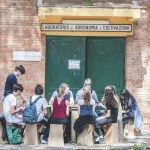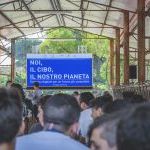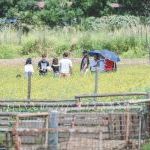We, Food, Our Planet
We, Food, Our Planet is a project run by Barilla - a well known and historical Italian producer of excellent pasta. For more than 10 years, Barilla has been actively engaged in evironmental problems, having developed several important activities to tackle sustainability issues. The project encourages innovative teaching and offers teachers online training on the issues of food and food sustainability, as well as digital teaching tools for classroom lessons. The project embraces three different age groups and is accompanied by laboratory activities for practical learning.
Website
Useful links
In the UK, the Countryside Classroom provides excellent links to a whole range of educational resources
Country
Media
* TOP TIP *
'Like Barilla, many food manufactures and agricultural organisations off resources for schools. These can provide excellent materials to use for discussions on different food production'
How is the project linked to climate change and sustainability?
The role of the teacher is fundamental to help promote student behaviours oriented towards active and conscious citizenship, in line with the Sustainable Development Goals of the UN 2030 Agenda. Within the Barilla Foundation's 'We, Food, our Planet' training programme, teaching materials are designed to help teachers set up their lessons and involve students by teaching the fundamental importance of sustainability, through food.
Who is involved?
The Barilla Foundation provides support to teachers, pedagogues, and children.
How are the participants involved?
The project opens a dialogue with children and young people with a food education that focuses on health and the environmental impact of eating styles. Teachers are of fundamental importance and the teaching resources highlight a collection of 10 keywords and concepts related to the sustainability of food. It ensures the terms are understood and a series of actions to generate change are identified. This way, small daily actions can be put in place that can help facilitate the achievement of the different objectives of Agenda 2030. For each of the 10 terms there are: a definition and in-depth material to address the subject; actions for change that can be obtained in terms of sustainable development; and a number of tips and exercises to use words in the classroom creatively, taking into account the different learning abilities.
We, Food, Our Planet also has a digital app providing an interactive gaming experience. Quizzes and interactive games enable children to discover global problems and also environmental solutions. Additionally, We, Food, Our Planet - In Action rewards excellence in teaching and give visibility to schools that have distinguished themselves for their approach to food and environmental sustainability.
Key steps:
The project explores the following terms and themes so you can use these as a basis to discuss and research key terminology regarding sustainability:
1. Feeding
2. Biodiversity
3. Climate change
4. Desertification
5. Supply chain
6. Malnutrition
7. Food losses and waste
8. Seasonality
9. Territory
10. Urbanisation



